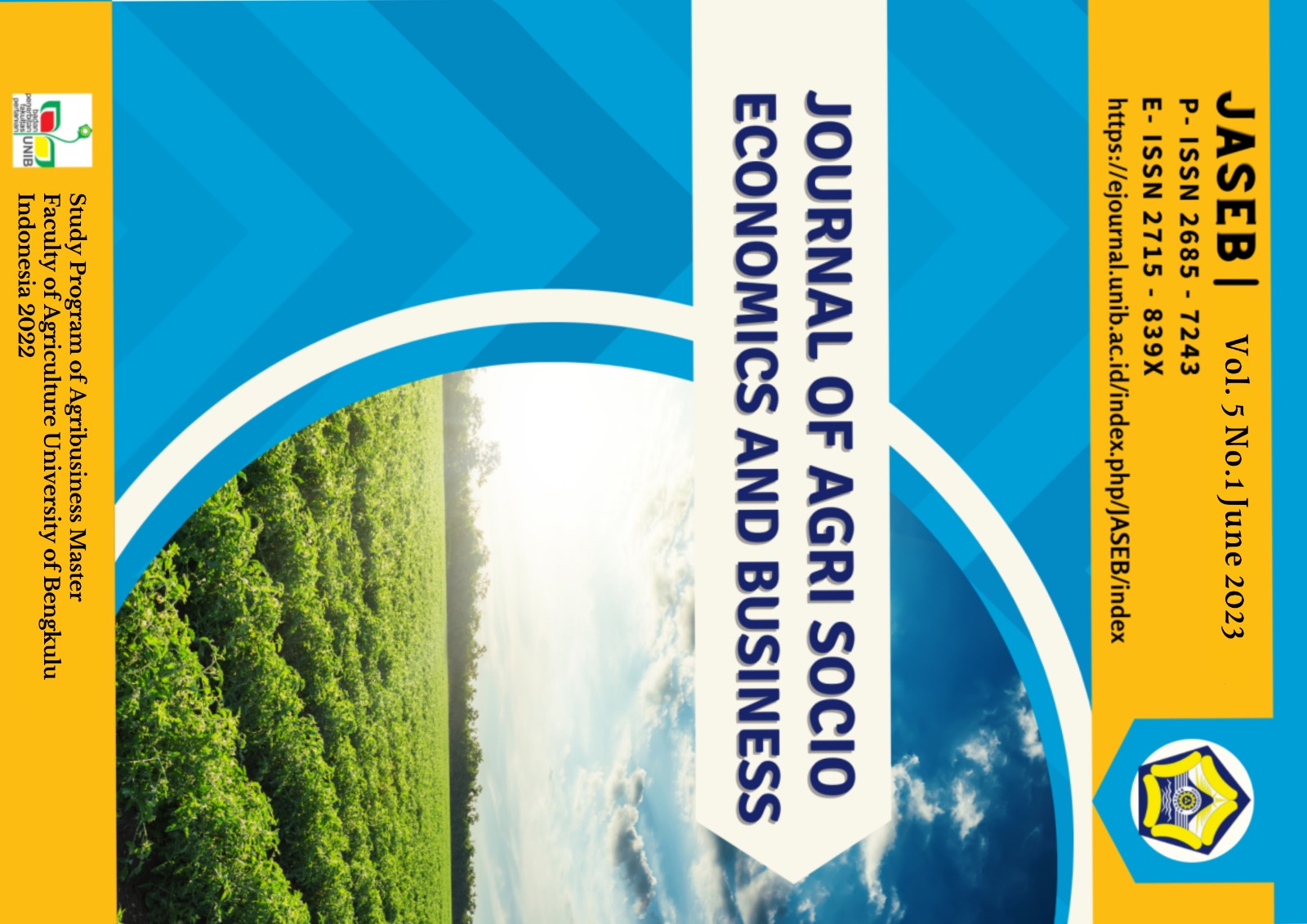Main Article Content
Abstract
Horticulture is one of the potential agricultural sub-sectors. Max Yasa Cooperative is a primary cooperative that produces local chickpeas and Kenyans that export chickpeas to Singapore by establishing a farmer corporation system. This study aims to determine the application of corporate farming carried out by the Max Yasa Cooperative and to determine the strategy for developing a bean cultivation business using the Business Model Canvas (BMC) at the Max Yasa Purbalingga cooperative. The data in this study are primary data and secondary data. Data analysis techniques are carried out descriptively using the Business Model Canvas. The results showed that the application of corporate farming carried out by the Max Yasa Cooperative in terms of economy, society, and environment. Business Model Canvas as a model for developing cultivation business in max yasa purbalingga cooperative are (1) key partnership, namely export companies, and traders collecting local markets (2) key activities, namely providing agricultural production facilities, bean cultivation, post-harvest chickpea activities, and marketing of chickpeas (3) Key resources, namely partner farmer land, buildings for post-harvest activities, pickup cars as a means of transportation. (4) Customer segments, namely traders, collectors, and companies (5) Value proposition, namely the number of chickpea quotations (6) Channels consist of direct cooperation and contractual cooperation (7) Customer relationship, namely maintaining communication and maintaining product quality (8) revenue stream, namely sales of local chickpea products and Kenyan chickpeas (9) cost structure consists of production costs and labor wage costs.
Article Details
Copyright (c) 2023 Herlyna Novasari Siahaan

This work is licensed under a Creative Commons Attribution-ShareAlike 4.0 International License.
An author who publishes in the Journal of Agri Socio Economics and Business agrees to the following terms:
Author retains the copyright and grants the journal the right of first publication of the work simultaneously licensed under the Creative Commons Attribution-ShareAlike 4.0 License that allows others to share the work with an acknowledgement of the work's authorship and initial publication in this journal
Submission of a manuscript implies that the submitted work has not been published before (except as part of a thesis or report, or abstract); that it is not under consideration for publication elsewhere; that its publication has been approved by all co-authors. If and when the manuscript is accepted for publication, the author(s) still hold the copyright and retain publishing rights without restrictions. For the new invention, authors are suggested to manage its patent before published. The license type is CC-BY-SA 4.0.
Journal Agri Socio-Economics and Business is licensed under a Creative Commons Attribution-ShareAlike 4.0 International License.
